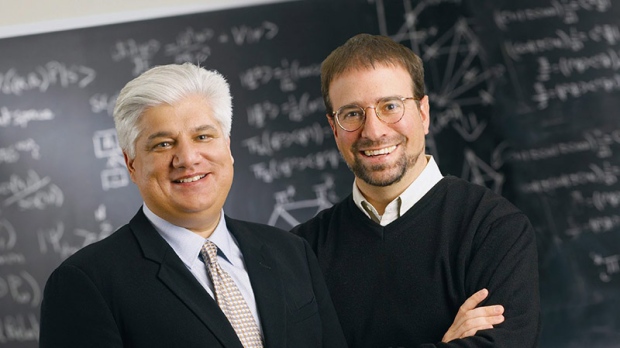Science Seen Physicist and Time One author Colin Gillespie helps you understand your world.
What’s It to You?
So―a bolt from the blue as the saying goes―I’ve come to understand the way the universe begins. And I’ve concluded I should write a book to share this long-sought understanding with everyone.
Why would anyone set out to write a book for everyone? I can think of only one good reason: Because its subject’s something that affects our lives.
I look around. Computer, phone, both linked to the Internet. My music. And much more. Almost everything I see or hear or touch exists because of physics. Behind the scenes, our whole economy is based on it. For example, I can see how the world’s top employers all depend, day in day out, on quantum mechanics (affectionately known to many as QM).
I take a Google look at QM’s history. Not long ago it’s just a weird idea. But it opens a window into the tiny world of atoms and electrons. While some don’t believe in them, others get excited; they explore the weird idea and with it build the modern world. I realize: Take QM from our world and we might be worse off than people were in the 1930s when average income in America was $1,500. Per family, per year!
Yet today I read another story saying the economy is bogging down. Is it coincidence that physicists are saying physics is now broken? And I find Mike Lazaridis―BlackBerry QM-business leader, fundamental-physics funder―saying, “We need a new discovery.” 
Here I am, hunkered down in front of a computer screen, trying to get my head around the implications of the way our universe began. One thing is clear: It lays the basis for new physics at a scale that is staggeringly smaller than the atoms and electrons of QM. I need no Google search to see a deep discovery in fundamental physics could totally transform all of our lives.
I draft some lines that might fit in the kind of book I have in mind.
What shall we say of our stewardship? What will they say, the next generation who will live with lessness? What possibility remains to us for a reply? Unless . . . unless perhaps we might pass on to them a birthright, such ideas of such potency as might lead to a new economy as inconceivable as cell phones, CPUs, genetic codes and googling were not many years ago. They too need hope.
Sources:
Michael L. Dolfman & Denis M. McSweeney, 100 Years of U.S. Consumer Spending: Data for the Nation, New York City and Boston, Washington: United States Department of Labor, Bureau of Labor Statistics, p. 15; http://www.bls.gov/opub/uscs/1934-36.pdf
Mike Lazaridis (2009), The Public Policy Forum, April 2, speech at a testimonial dinner, http://www.perimeterinstitute.ca/news/address-mike-lazaridis-pi-board-chair-public-policy-forum
Other reading:
National Research Council (1997), The Physics of Materials: How Science Improves Our Lives, Washington: National Academy Press; http://www.nap.edu/openbook.php?record_id=9090
Wikipedia article on QM: http://en.wikipedia.org/wiki/Quantum_mechanics#Applications

No comments yet.